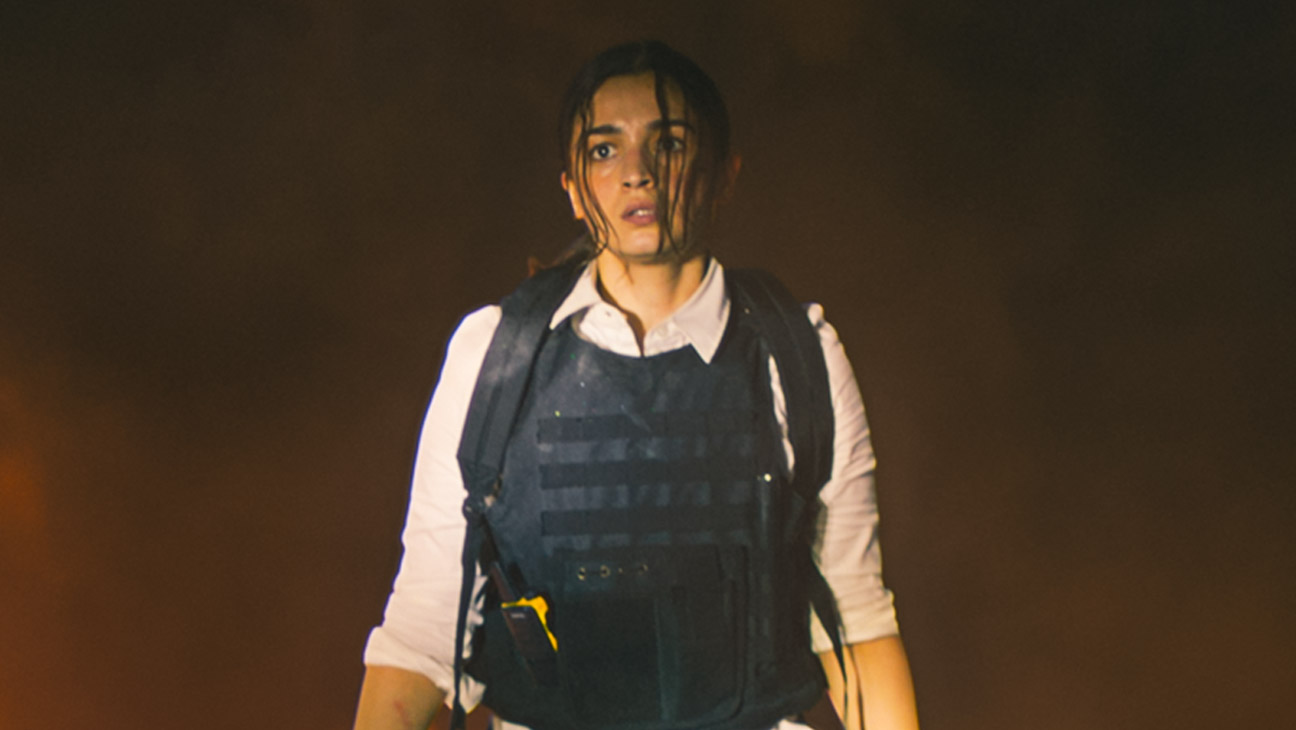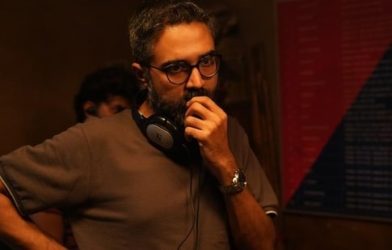Jigra (which means both heart and courage) is, in equal parts, gutting and emotional but also far-fetched and logic-free. Director and co-writer Vasan Bala creates a jailbreak movie that tries to find the sweet spot between moving sibling drama, thrilling action and breathless suspense, and although he doesn’t hit all the marks, lead actor and co-producer Alia Bhatt reconfirms that she is a formidable talent.
Even when the plot becomes looser and the twists too convenient, Bhatt doesn’t miss a beat. She’s fabulously fierce as protagonist Satya, her eyes maintaining an expression of unblinking determination. She might be small physically, but when she takes down a grown man, we don’t question it because her conviction is so absolute. In one scene, another character admiringly calls her a gundi (gangster). In this environment, it’s a compliment.
Jigra
The Bottom Line
Equal parts emotional and illogical, but Bhatt shines.
Release date: Friday, Oct. 11
Cast: Alia Bhatt, Vedang Raina, Vivek Gomber, Manoj Pahwa, Rahul Ravindran, Aditya Nanda
Director: Vasan Bala
Screenwriter: Vasan Bala, Debashish Irengbam
2 hours 35 minutes
Satya is unbreakable because she’s had to grow up too fast. As orphans, she and her younger brother Ankur (Vedang Raina) were raised by an extended family who essentially treated them as staff. When Ankur is incarcerated in the fictional country of Hanshi Dao (we’re told it’s near Malaysia), Satya decides that she will do whatever it takes to save him. She is the sister as superhero: resilient, resourceful and, by the end, a full-on action star.
Bala begins beautifully. Along with co-writer Debashish Irengbam and editor Prerna Saigal, he packs in information so that characters and relationships are established before the titles are even over. Notably, this includes the affluence and casual cruelty of Satya and Ankur’s relatives. These people are private-plane rich, but they didn’t get there by playing nice.
The excellent camerawork is by Swapnil Suhas Sonawane, who also shot Bala’s last feature Monica, O My Darling. There are a few moments when DP and director get unnecessarily gimmicky, such as one scene that has black and white frames for no apparent reason. But Swapnil and colorist Sidharth Meer largely succeed in making Hanshi Dao and the correctional facility seem at once foreign and familiar, beautiful and menacing. Some scenes are bathed in red hues, and the climax features an interesting use of smoke.
One of the best sequences in the film is Satya and Ankur’s first meeting in prison. Raina, who combines acting chops with charisma, is superb. So is the music by Achint Thakkar. His plaintive, aching notes add to the drama and desperation of the moment.
Once the narrative kicks into jailbreak mode, however, the movie starts to wobble and doesn’t recover. One of the fault lines is Hansraj Landa, the sadistic jailer played by Vivek Gomber. The authority figure who gets pleasure from torturing his wards is a movie cliché. You might recall Bob Christo playing the same in Mahesh Bhatt’s 1993 film Gumrah, which stars Bhatt’s mother Soni Razdan, and which internet sleuths have deduced is the inspiration for Jigra. But Christo’s character isn’t very effective, and, 31 years later, neither is Landa. With a family that’s been in Hanshi Dao for generations, Landa is more local than Indian, and speaks English with a peculiar accent. Gomber gives it his best, but it’s impossible to take this character seriously.
The connection between Satya and her allies is similarly underwritten. Manoj Pahwa plays Bhatia, who describes himself as a retired gangster, and while the actor can make the flimsiest scene convincing, the character seems designed specifically to add a touch of mass appeal. An Amitabh Bachchan fan, Bhatia listens to tracks from Zanjeer, the Prakash Mehra classic which established the persona of the “angry young man.” Satya, likewise, is very much the “angry young woman.”
Essentially, Bhatia allows Bala to dabble in nostalgia and his fondness for inserting Easter eggs into the narrative. Old Hindi film songs are used liberally, including Kaifi Azmi’s “Jhuki Jhuki Si Nazar” and “Yari Hai Imaan Mera” from Zanjeer. In one scene, we hear Bachchan’s classic lines from Agneepath. There’s even a moment in which a guard reads out the names of prisoners including John Woo, Wong Kar-wai and Kim Ki-Duk — I’m assuming these are all filmmakers that Bala admires.
A feeble attempt is made to weave in politics via some sort of resistance movement in Hanshi Dao, where personal freedoms are restricted. In one sequence, we see a leader’s statue being toppled over, similar to the iconic visual of Saddam Hussain’s statue in Iraq. But all of this is so vague that it adds little to the plot.
By the time Jigra ends in a blaze of bullets, anything seems possible — which considerably dilutes the impact of the narrative. Still, to see Bhatt running down a roof in slow motion, armed and dangerous, is a thing of beauty.








